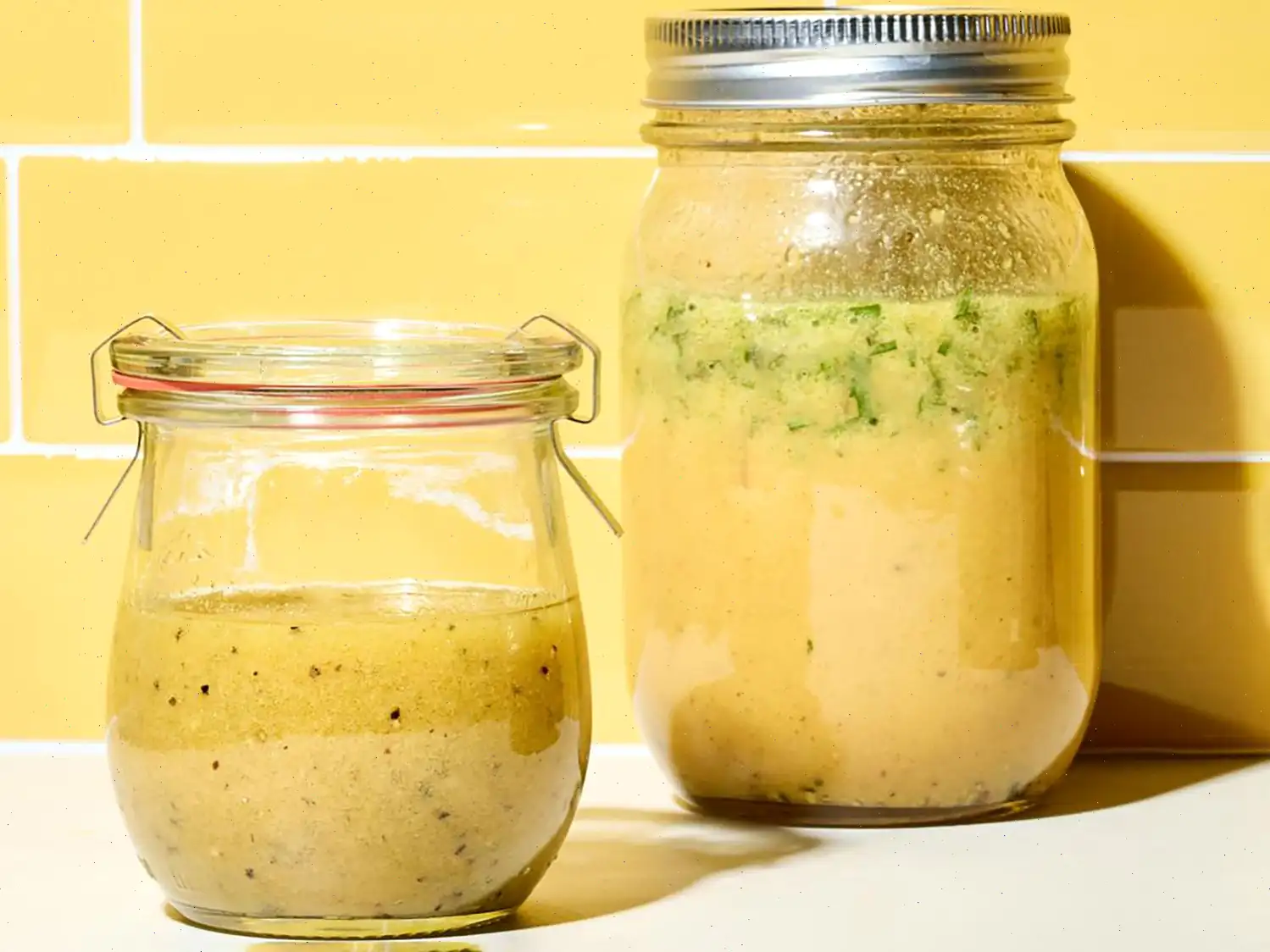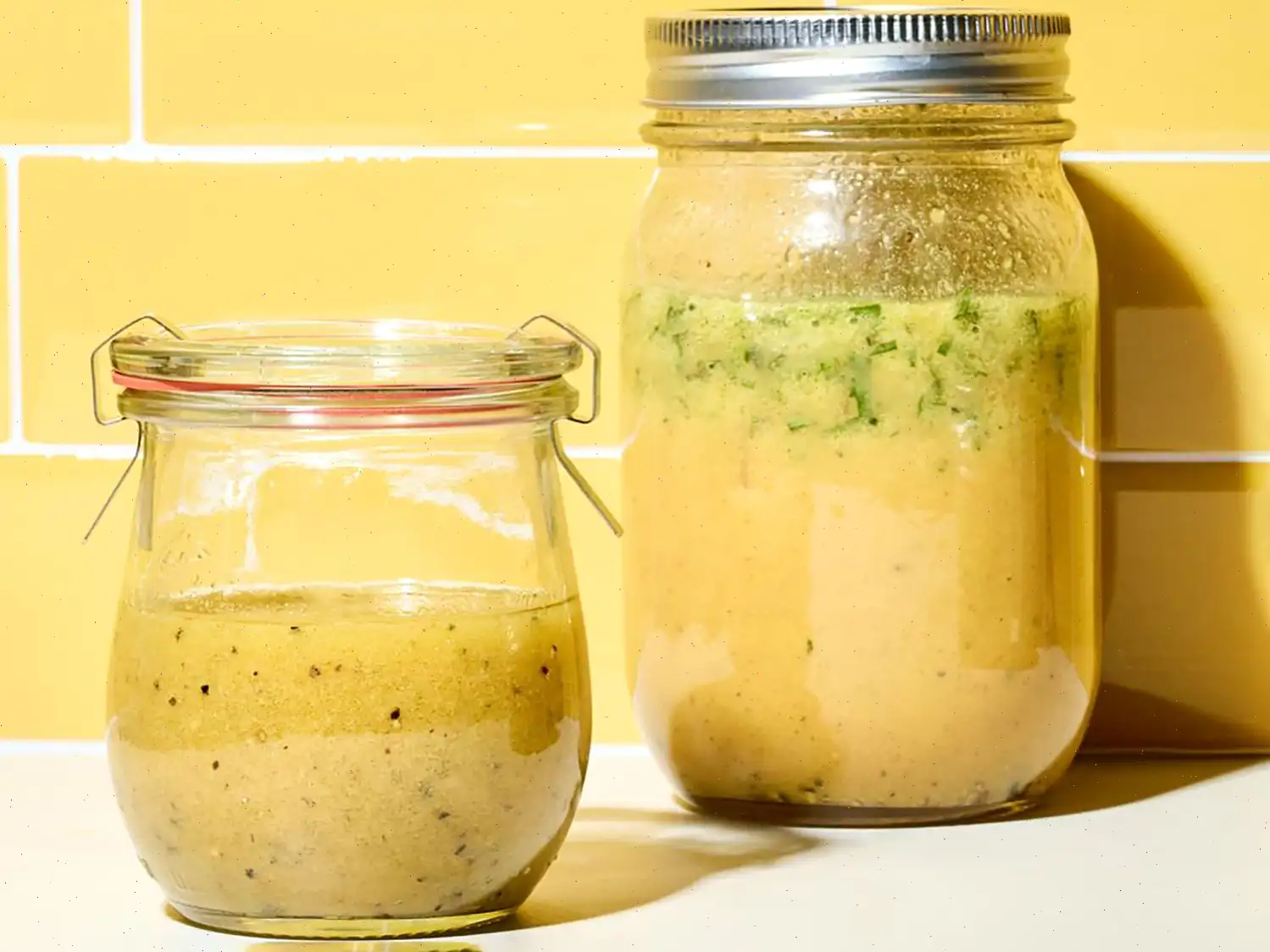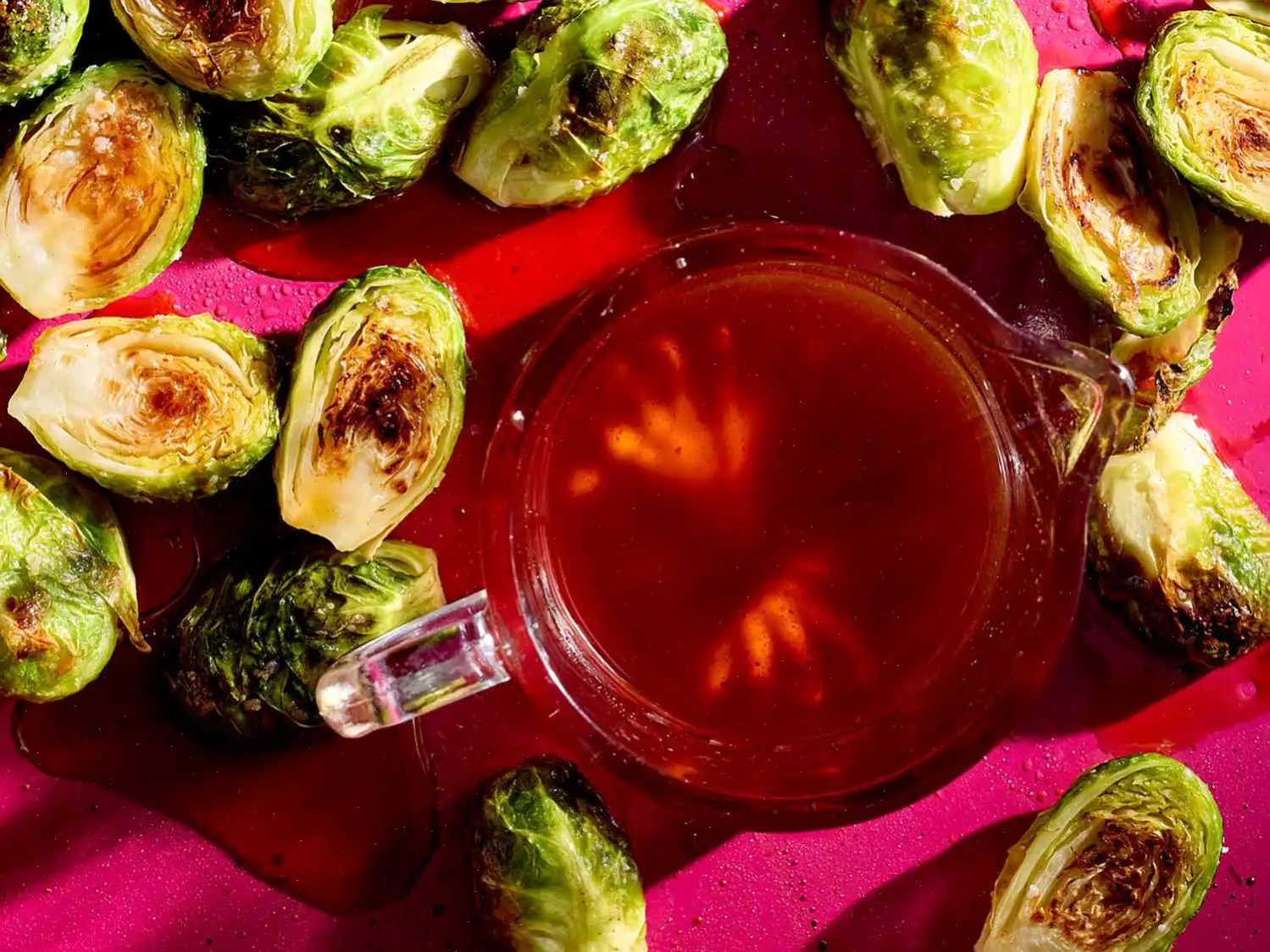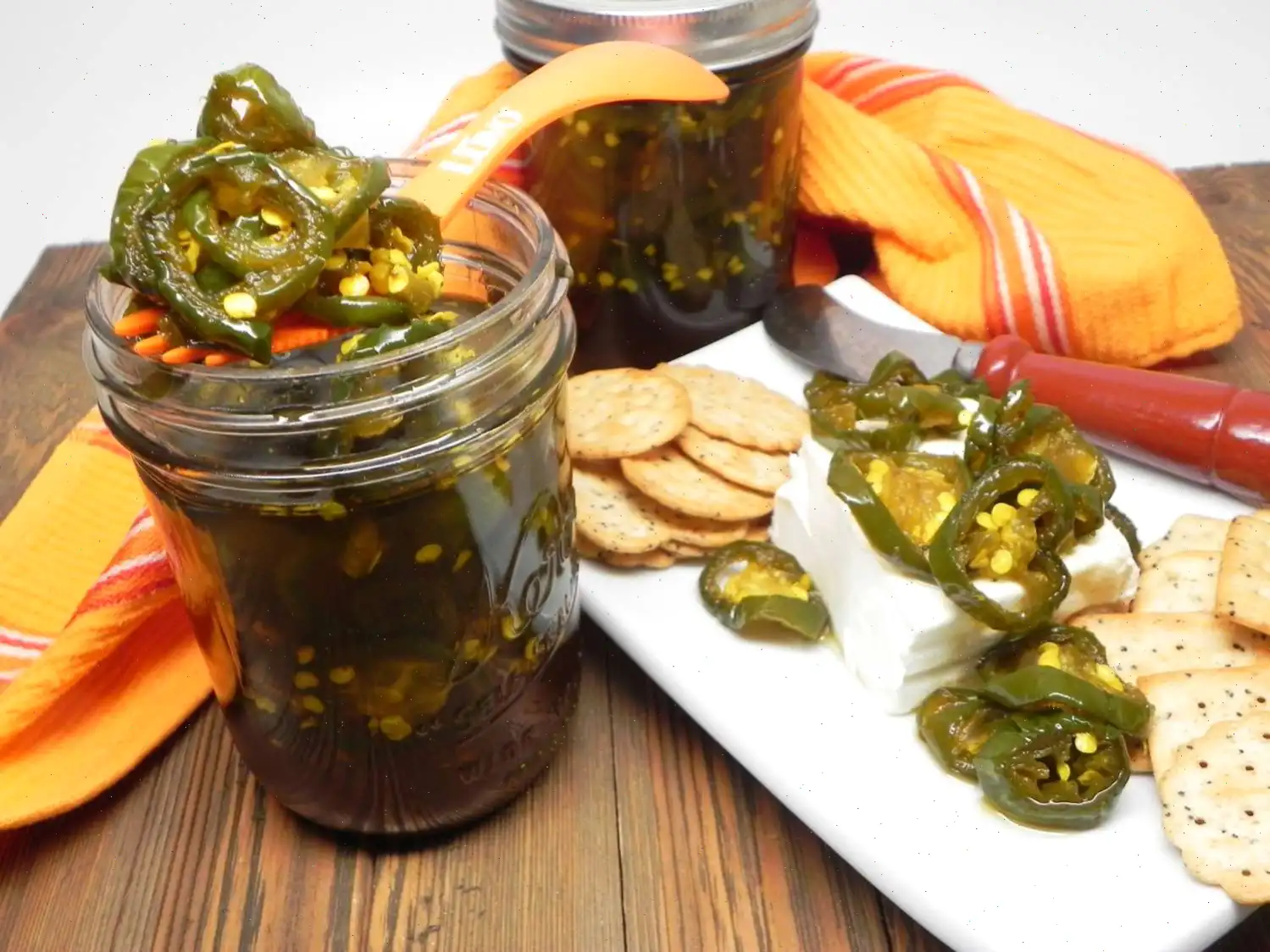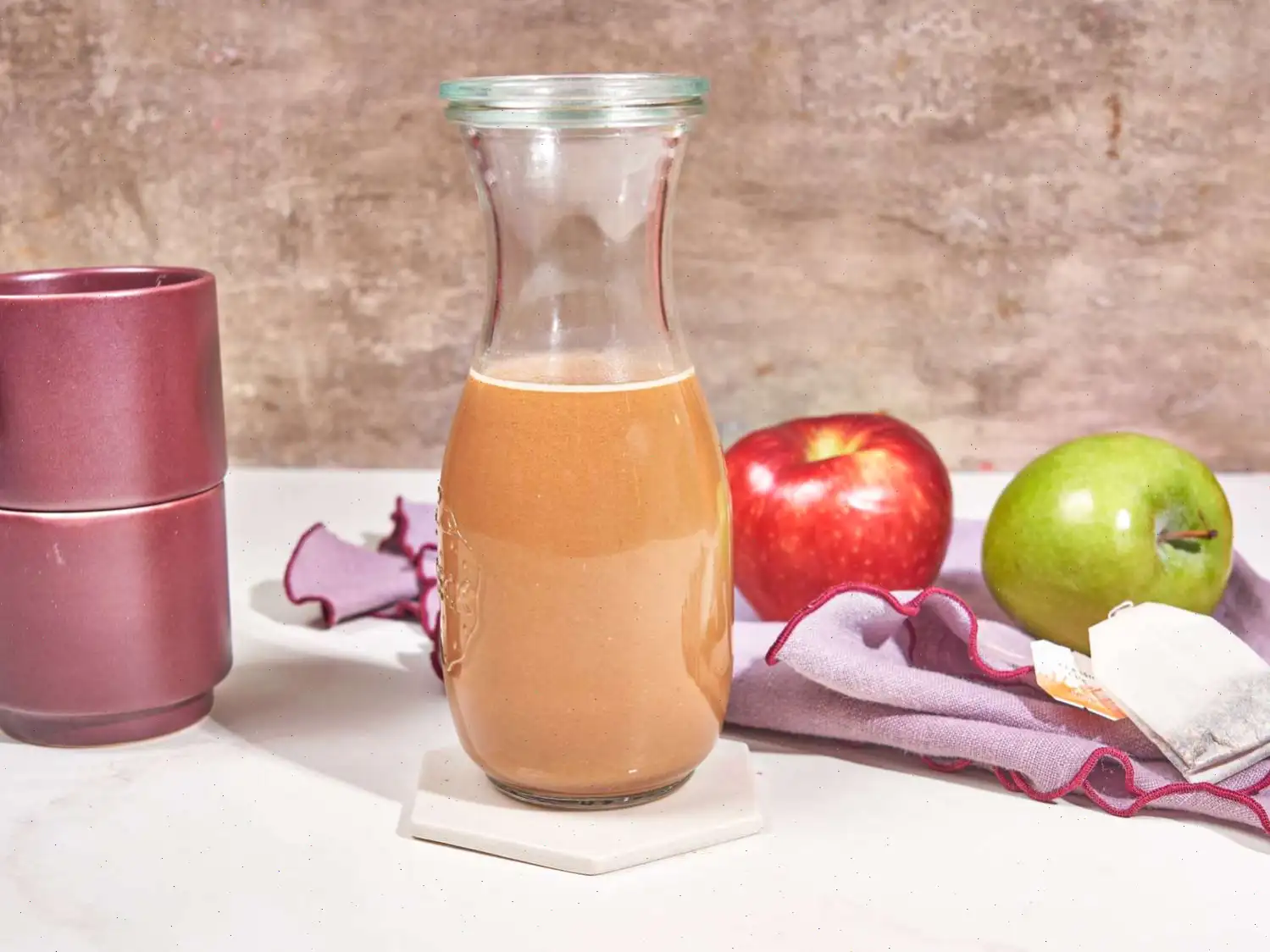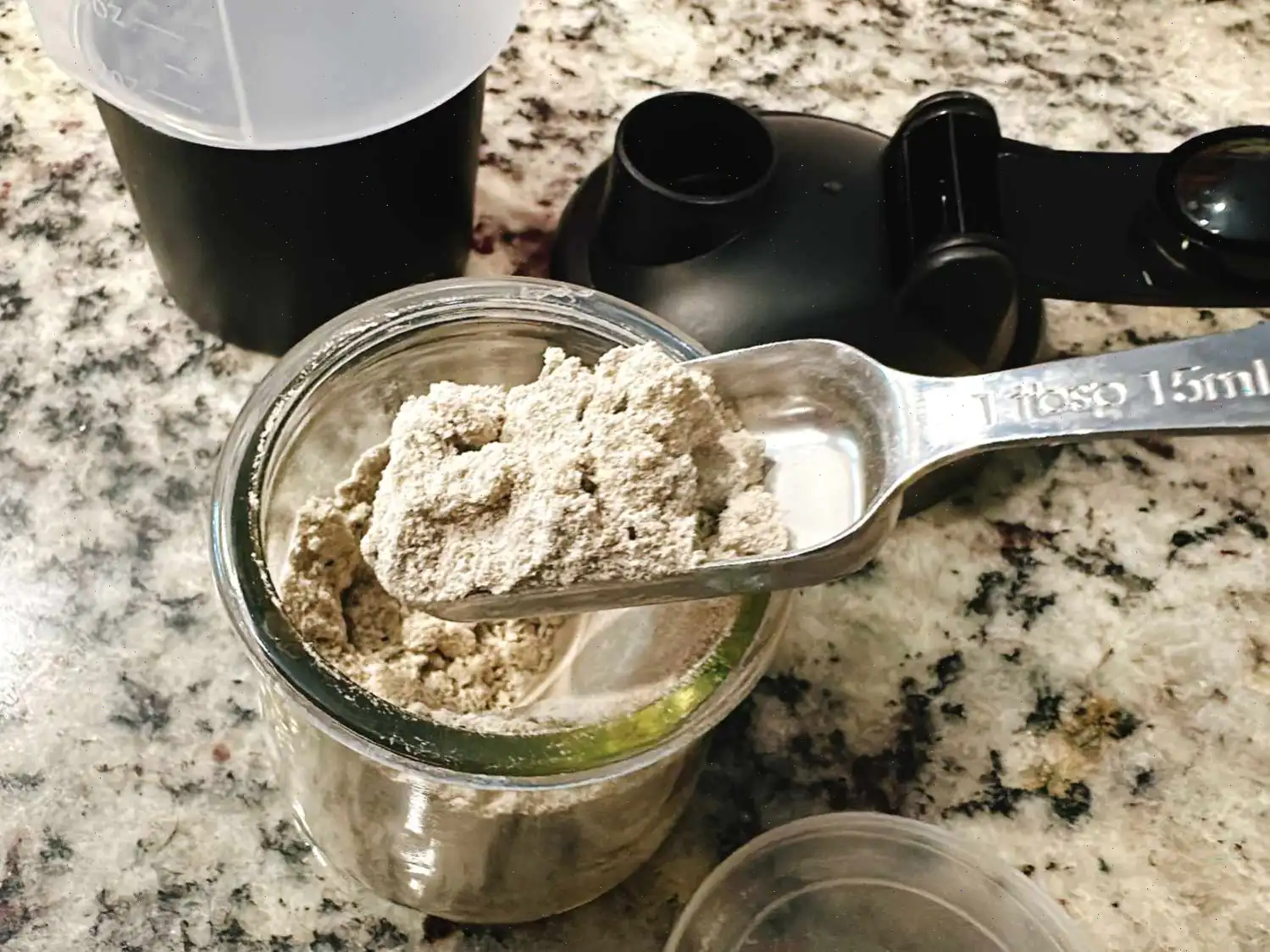
Receta de Marinada de Sidra de Manzana
Esta marinada de sidra de manzana es perfecta para darle un sabor dulce y ácido a tus carnes favoritas. Hecha con ingredientes sencillos como vinagre de sidra, miel y especias, esta marinada llevará tu parrilla al siguiente nivel. Solo tienes que dejar la carne en la marinada unas horas antes de cocinarla para un plato delicioso y lleno de sabor. Pruébala con pollo, cerdo o incluso tofu para darle un giro sabroso a tus comidas de siempre. ¡Disfruta!
Receta de Marinada con Mostaza y Hierbas
Ingredientes
- 2/3 taza de sidra de manzana
- 1/3 taza de aceite de oliva extra virgen
- 1/3 taza de vinagre de sidra de manzana
- 2 cucharadas de mostaza de grano con un toque picante
- 2 cucharadas de chalotas finamente picadas
- 2 cucharadas de perejil fresco picado
- 1 cucharada de romero fresco picado
- 2 cucharaditas de sal de mesa
- 1 cucharadita de tomillo fresco picado
- 1 cucharadita de pimienta negra recin molida
Instrucciones
1. En un tazn mediano, mezcla la sidra de manzana, el aceite de oliva, el vinagre de sidra de manzana, la mostaza, las chalotas, el perejil, el romero, la sal, el tomillo y la pimienta negra. Revuelve bien hasta que todos los ingredientes se integren completamente y la mezcla quede suave.
2. Coloca la protena de tu eleccin (pollo, carne de res, pescado o tofu) dentro de una bolsa plstica resellable grande, apoyada sobre una bandeja poco profunda para evitar derrames.
3. Vierte la marinada sobre la protena, asegurndote de que cada pieza est bien cubierta. Cierra la bolsa hermticamente y masajea suavemente para distribuir los sabores de manera uniforme.
4. Sella la bolsa y refrigrala. Deja marinar durante al menos 4 horas, pero si prefieres un sabor ms intenso, lo ideal es dejarla reposar toda la noche.
Informacin Nutricional (por porcin)
- Caloras: 128
- Grasas totales: 12g (16% DV)
- Grasas saturadas: 2g (8% DV)
- Colesterol: 0mg (0% DV)
- Sodio: 766mg (33% DV)
- Carbohidratos: 5g (2% DV)
- Fibra diettica: 1g (2% DV)
- Azcares: 3g
- Protenas: 0g (1% DV)
- Vitamina C: 13mg (14% DV)
- Calcio: 13mg (1% DV)
- Hierro: 0mg (2% DV)
- Potasio: 71mg (2% DV)
*Los valores porcentuales diarios se basan en una dieta de 2,000 caloras y pueden variar segn las necesidades individuales. El contenido nutricional es aproximado y no refleja las variaciones de todos los ingredientes.
**Si tienes necesidades dietticas especficas, consulta a un profesional de salud antes de preparar este plato.
La sidra de manzana ha sido durante mucho tiempo un ingrediente fundamental en la cocina estadounidense, con races que se remontan a la poca colonial, cuando los huertos de manzanas eran comunes y la sidra se utilizaba tanto como bebida como ingrediente culinario. El uso de la sidra de manzana en marinadas surgi como una forma natural de ablandar las carnes mientras se les aada un toque sutil de dulzura y acidez. Para el siglo XIX, los cocineros estadounidenses ya experimentaban combinando sidra, vinagre y hierbas para crear perfiles de sabor complejos para cerdo, pollo e incluso vegetales.
La marinada moderna de sidra de manzana, con mostaza y hierbas frescas, refleja una fusin entre tcnicas tradicionales de conservacin y la creatividad culinaria contempornea, ofreciendo sabores ricos y equilibrados que realzan cualquier platillo.
Caractersticas Regionales
Las marinadas de sidra de manzana son especialmente populares en el noreste de Estados Unidos, donde los huertos de manzana son abundantes. En regiones como Nueva Inglaterra, la sidra se prensa fresca y se utiliza en marinadas tanto para barbacoas de verano como para asados de festividades. En el sur, las adaptaciones pueden incluir variedades de sidra ms dulces combinadas con especias locales como pimentn ahumado o cayena, creando un sabor ms clido y picante. En el medio oeste, las marinadas de sidra suelen acompaar al cerdo, reflejando la tradicin de produccin porcina de la regin.
Diferencias con Platos Similares
A diferencia de las marinadas tradicionales a base de vinagre, la marinada de sidra de manzana ofrece un equilibrio nico entre dulzura y acidez que realza los sabores naturales sin dominarlos. Mientras que otras marinadas a base de frutas, como naranja o pia, dependen mucho del azcar o de enzimas para ablandar la carne, la sidra de manzana aporta un toque ms suave y aromtico. La inclusin de mostaza, hierbas frescas y chalotas la distingue de las mezclas simples de sidra y vinagre, otorgando una complejidad de capas que la separa de los encurtidos clsicos o las vinagretas simples.
Ocasiones y Presentacin
Los platos marinados con sidra de manzana se sirven comnmente en cenas caseras, reuniones de temporada y barbacoas al aire libre. Las chuletas de cerdo, pechugas de pollo y el tofu son protenas populares para esta marinada. Los restaurantes especializados en cocina tradicional americana o en mens de granja a la mesa suelen incluir platos marinados con sidra de manzana en sus cartas de temporada, especialmente durante la cosecha de otoo. Tambin son favoritos en ocasiones festivas, donde su perfil de sabor brillante complementa vegetales asados, pur de papas y ensaladas frescas de otoo.
Datos Curiosos
- La sidra de manzana contiene cidos naturales que ayudan a descomponer las protenas, ablandando la carne sin necesidad de aditivos qumicos.
- Histricamente, la sidra de manzana a veces se utilizaba como sustituto del vino o la cerveza en la cocina cuando estas bebidas alcohlicas eran escasas o caras.
- El uso de sidra en marinadas no solo aade sabor, sino que tambin mejora el dorado de la carne durante la coccin gracias a su contenido de azcar.
- Las variaciones regionales pueden incorporar variedades locales de manzana, creando perfiles de sabor nicos que reflejan el terroir del huerto.
- Muchos chefs recomiendan marinar al menos cuatro horas o toda la noche para que los sabores penetren bien en la carne, aunque un marinado excesivo puede ablandar demasiado protenas delicadas como el pollo.

